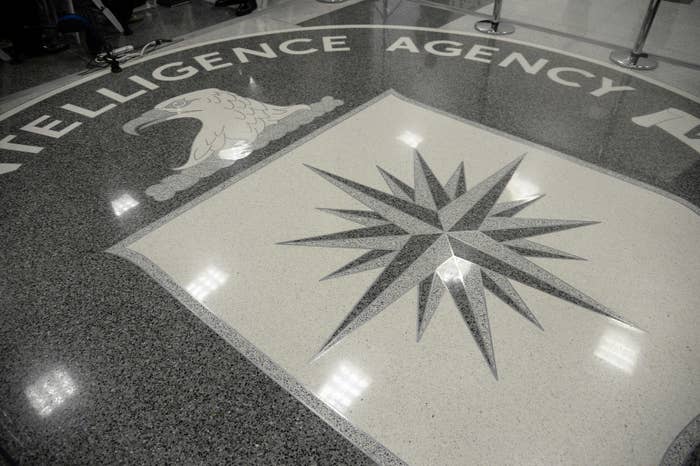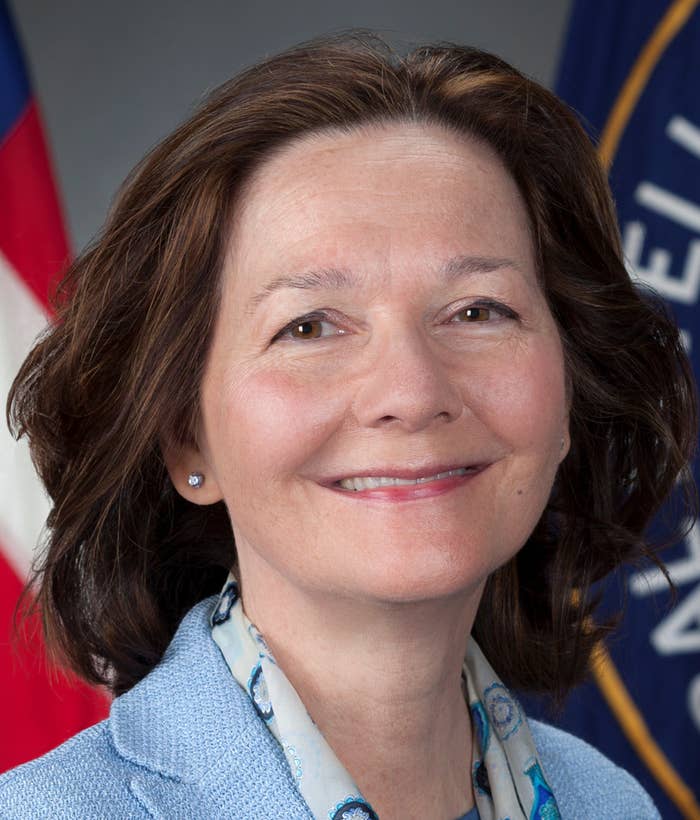
President Donald Trump’s nominee to run the Central Intelligence Agency oversaw the torture of terrorism suspects at a secret CIA prison in Thailand in 2002 and helped destroy videotapes documenting the brutality.
Trump’s decision to name Gina Haspel as the intelligence agency’s first female director stirred immediate opposition from at least two Senate Democrats and the American Civil Liberties Union, and drew questions from Sen. John McCain. Other Republicans voiced support.
Haspel has been the agency’s second-in-command since February 2017, when Trump appointed her.
But unlike the deputy director, the CIA director must be confirmed by the Senate, where several influential Democrats have protested Haspel over her role in CIA torture while she was a clandestine agency officer. On June 7, the EU Center for Constitutional and Human Rights called on Germany to issue a warrant for her arrest over the torture allegations.

Haspel would replace CIA Director Mike Pompeo, whom Trump said he would nominate to become secretary of state, replacing the ousted Rex Tillerson.
Republican Richard Burr, chairman of the Senate Intelligence Committee, said he'll support Haspel. “I know Gina personally and she has the right skill set, experience, and judgment to lead one of our nation’s most critical agencies," Burr said in a statement.
Burr told BuzzFeed News that he was not concerned with Haspel's interrogation of terror suspects. "No, I think the person who expressed the most concern is Sen. Feinstein."
Dianne Feinstein, now the ranking Democrat on the Senate Judiciary Committee who as the chair of the Intelligence Committee led a major investigation into the CIA's black sites, said Tuesday that she thought Haspel "has been a good deputy director" of the CIA.
"It's no secret I've had concerns in the past with her connection to the CIA torture program and have spent time with her discussing this," Feinstein added in a statement. "I look forward to the opportunity to speak with her again." She declined to talk to reporters as she exited a luncheon in the Capitol.
McCain, a former prisoner-of-war and a strong critic of the CIA's "enhanced interrogation techniques," called the agency's "torture of detainees ... one of the darkest chapters in American history. Ms. Haspel needs to explain the nature and extent of her involvement." In his statement, McCain said Haspel "must pledge without reservation" to uphold the US prohibition on enhanced interrogation.
Haspel ran the first overseas detention site that the CIA created after the 9/11 attacks so it could interrogate suspects outside of the US, where laws prohibit torture. At that site in Thailand, CIA officers brutally interrogated suspected al-Qaida leader Abu Zubaydah. Interrogators slammed him against a wall repeatedly, poured water over his face until he started to suffocate and confined him for hours in a cramped box.

Zubaydah has been held at the Guantanamo Bay detention camp since 2003, and his value as an information source has been disputed. President George W. Bush and CIA leaders said he provided helpful information. But Zubaydah's lawyer, Brent Mickum, wrote in 2009 that his client never belonged to al-Qaida or the Taliban, never fought against the US and was tortured so badly that "it's not surprising that the videotapes of his torture were destroyed."
Haspel reportedly drafted the order to destroy the video along with 91 other tapes documenting the agency’s brutal interrogations. The CIA has said the ultimate decision to destroy the tapes was made by Haspel’s boss, Jose Rodriguez, who was head of the agency’s clandestine service. But Rodriguez wrote in his 2013 memoir "Hard Measures" that Haspel "drafted a cable" ordering that the tapes be destroyed. Rodriguez wrote that he “took a deep breath of weary satisfaction and hit Send.”
Five months before the tapes' destruction, a federal judge had ordered the Bush administration to preserve "all evidence and information regarding the torture, mistreatment, and abuse of detainees" being held at Guantanamo.
Ali Soufan, a former FBI agent who has criticized waterboarding, told MSNBC that Haspel's role in destroying the tapes "needs to come out at a hearing. We need to know what she thinks of these issues." Soufan told Congress in 2009 that after Zubaydah was tortured, the flow of intelligence from him stopped.
When Trump named Haspel the agency’s deputy director, Democratic Sens. Ron Wyden and Martin Heinrich urged Trump to reconsider the appointment. “Her background makes her unsuitable for the position,” the senators wrote Trump. Both are members of the Senate Intelligence Committee and they urged the declassification of information about Haspel.
On Tueday, Wyden said he would oppose both Haspel's and Pompeo's nominations.
"Ms. Haspel's background makes her unsuitable to serve as CIA director," Wyden said in a statement. "Her nomination must include total transparency about this background."
Another Democrat, Sen. Tammy Duckworth, also said she would oppose both nominations and said Haspel's "reprehensible actions should disqualify her from having the privilege of serving the American people in government ever again."
But Burr, the committee chairman, said in his statement that he wants to ensure Haspel's nomination is considered "without delay."
Republican Sens. James Risch and James Inhofe told reporters in the Capitol that they support Haspel. "I sat through those hearings," Risch said, referring to Senate hearings on CIA interrogation techniques. "I don't have any issues with that."
Inhofe said he doesn't know Haspel well but said, "I'll support her. I know she's a good choice."
In early 2017, Republican Devin Nunes, the chairman of the House Intelligence Committee, called Haspel “undoubtedly the right person for the job” and said she had over the years “impressed us with her dedication, forthrightness, and her deep commitment to the intelligence community.”
John Brennan, who was CIA director from 2013 to 2017, praised Haspel in an interview Tuesday on MSNBC, noting that the controversial interrogation program she oversaw in Thailand had been authorized by President George W. Bush and deemed lawful by the Justice Department.
“She has tremendous respect within the ranks. She was involved in a very, very controversial program, and I know that the Senate confirmation process will look at that very closely,” Brennan said. “But Gina Haspel has a lot of integrity. She has tried to carry out her duties at the CIA to the best of her ability, even when the CIA was asked to do some very difficult things in very challenging times.”
The ACLU issued a statement Tuesday denouncing Haspel and questioning whether she, as a career CIA officer, has the independence to oversee the agency.
“Gina Haspel was a central figure in one of the most illegal and shameful chapters in modern American history. She was up to her eyeballs in torture, both in running a secret torture prison in Thailand and carrying out an order to cover up torture crimes by destroying videotapes," the statement, attributed to Christopher Anders, deputy director of the American Civil Liberties Union’s Washington Legislative Office, said.
Trump said in a statement that Haspel would achieve “a historic milestone” as the first woman to serve as CIA director. “Mike [Pompeo] and Gina have worked together for more than a year, and have developed a great mutual respect.”
Haspel, a CIA veteran with more than 30 years experience, served temporarily in 2013 as head of the agency’s clandestine service. But her role in the clandestine torture program prompted Brennan to name another candidate to take the job permanently.
Emma Loop contributed reporting
CORRECTION
Sen. Dianne Feinstein is the ranking Democrat on the Senate Judiciary Committee. An earlier version of this story identified her incorrectly.

